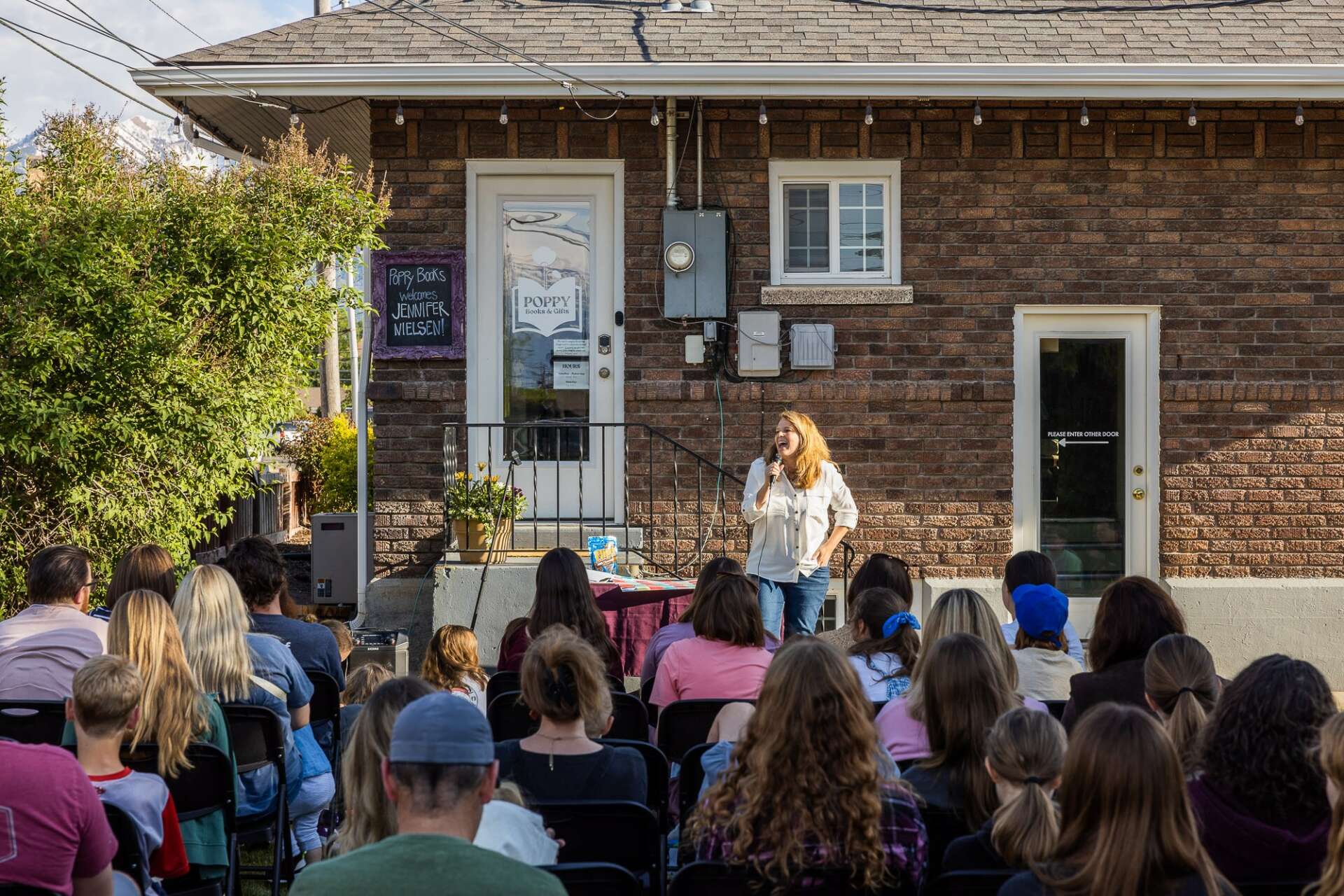We were lucky to catch up with Jennifer Nielsen recently and have shared our conversation below.
Jennifer, looking forward to hearing all of your stories today. So let’s jump to your mission – what’s the backstory behind how you developed the mission that drives your brand?
One of the privileges of being a children’s author is to sometimes be invited to visit schools to give assemblies about the importance of reading and writing. Very commonly afterward, the author will sign books for any students who purchased a copy of their own. In that moment, the student and author get a face to face moment for a brief conversation, which can be an incredibly valuable moment for that young person.
At times, I have noticed the young people who don’t have a book to be signed and are quickly ushered back to class. It’s not because they don’t want a book of their own; it’s often because their family cannot afford that book.
A few years ago, in conjunction with Writer’s Inc. in Utah, I launched Book Drop, a charity organization that works to get books into the hands of children in poverty. We work with Title 1 Schools to bring in an author for a donated assembly, then every student in the school receives a copy of that author’s book for free.
We do this because we believe that until children have equal access to books, we will never live in an equal society.


Jennifer, before we move on to more of these sorts of questions, can you take some time to bring our readers up to speed on you and what you do?
I am a #1 New York Times Bestselling author of books for young readers, writing mostly historical and fantasy novels. Some of those books include The Ascendance Series, beginning with The False Prince, the Traitor’s Game series, and the historical novels, A Night Divided, Resistance, Words on Fire, Iceberg, and other titles.
I write historical novels because I think it’s vital for young people to understand some of the key factors that have shaped the world they live in. If we do not know the past, we cannot possibly understand the present. I write fantasy novels to teach young people that anything is possible and the power of imagination.
As an author, I am passionate about finding ways to inspire young people to read, to choose it as an activity they will enjoy. Reading opens an endless number of doors to their futures.


Is there something you think non-creatives will struggle to understand about your journey as a creative? Maybe you can provide some insight – you never know who might benefit from the enlightenment.
First of all, I don’t think anyone is non-creative. I do believe that there are people who fail to recognize or value their own creativity, but I see everyone as a creative being, just in their own way. For example, marketing a small business requires creativity, arranging a window display is creative. I want physicians, engineers, architects, and lawmakers who recognize and value their creativity in solving the many problems they face in their careers.
But for those who don’t see themselves as a creative person, I think there are ways to expand that trait. One of my favorite ways is to ask questions about everything. Even if it’s a topic that a person believes they already understand, the question of “What more can I discover?” will lead to great new discoveries. At its core, this is simply the trait of being curious, of wondering, and being willing to explore rather than to accept what is provided to us. If we encouraged this as a society, endless possibilities would begin to unfold.


Is there a particular goal or mission driving your creative journey?
Absolutely!
I write books because I believe they can impact the lives of readers, in every wonderful way. Reading is far more than broadening vocabulary or acquiring information. Research has shown that reading lowers stress faster than any. other activity and its effects last longer than any other activity. Every story is a case study in problem-solving; therefore, readers are better equipped to set and then achieve goals, and they tend to do better in working their way through obstacles. Overall, readers report higher levels of self-confidence, they tend to believe they are healthier so they make healthier choices. and in fact, readers live an average of two years longer than non-readers. Readers tend to display greater empathy to people who are different from themselves, they are usually better at subtle social cues, and they will often take on the more heroic traits of the characters they admire most.
I have enormous respect for parents who read with their children, for teachers and librarians who work endless hours to invite children to read, and for booksellers who make those books available in communities throughout this country.
And I feel deeply for children who want to read, but who, because of their family situations, are not able to own books of their own. They deserve the same opportunities to benefit from reading.


Contact Info:
- Website: http://jennielsen.com
- Instagram: https://www.instagram.com/nielsenwriter/
- Facebook: Jennifer A. Nielsen, Author
- Twitter: https://twitter.com/nielsenwriter
Image Credits
Credit: Poppy’s Books and Gifts (For the photo of me speaking outside and the first photo of me signing a book)


